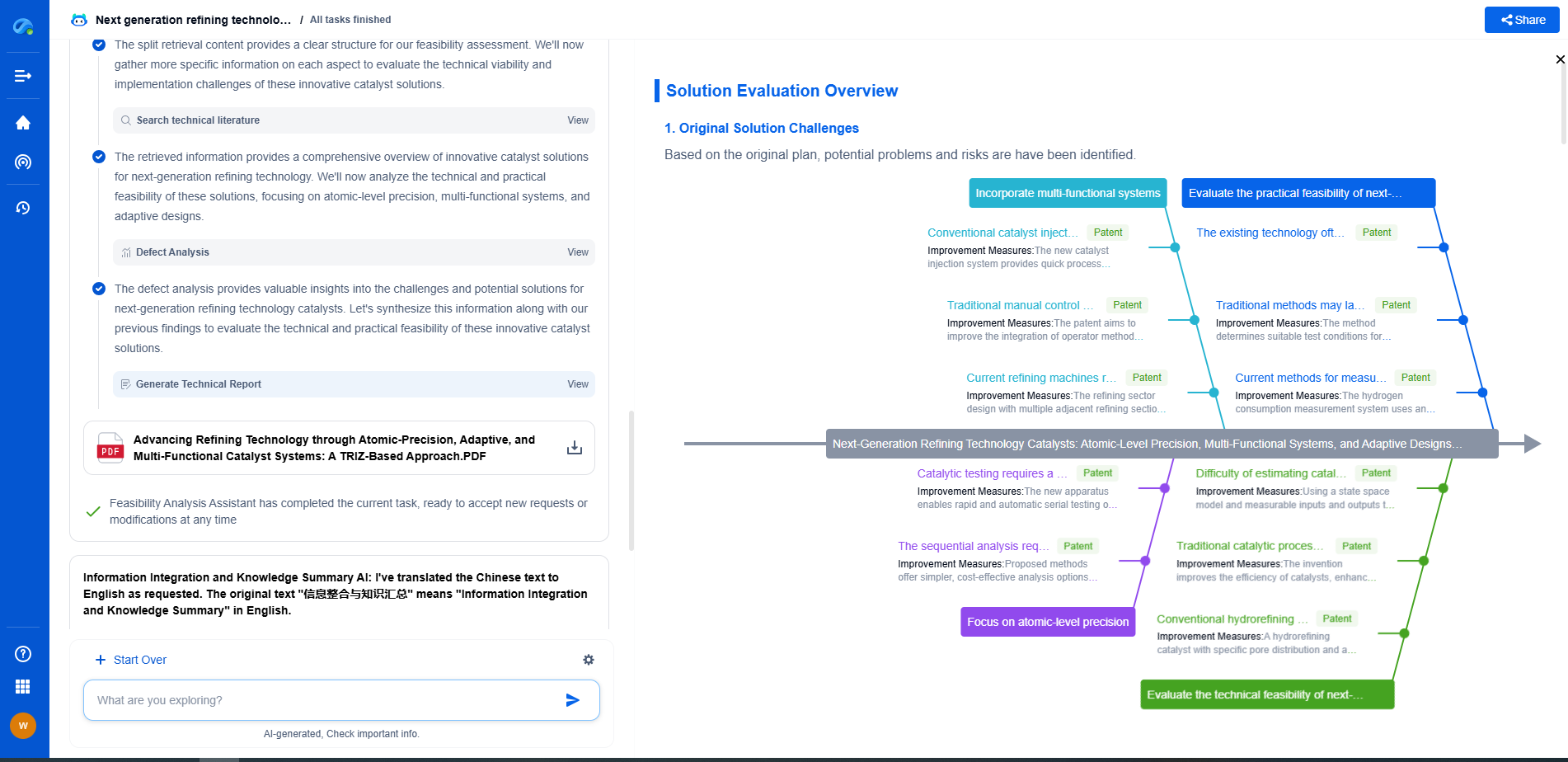Using SCADA Systems to Enforce Power Supply Protocols
JUN 26, 2025 |
Supervisory Control and Data Acquisition (SCADA) systems have emerged as a pivotal technology in the management of power supply protocols. As the demand for electricity continues to rise, ensuring the reliability, efficiency, and safety of power systems has never been more crucial. SCADA systems provide utilities with the necessary tools to monitor, control, and optimize the performance of power grids. These systems enhance the ability to enforce power supply protocols, leading to improved service delivery and sustainability.
The Role of SCADA in Power Supply Protocols
SCADA systems serve as the backbone for managing complex power networks. By providing real-time data acquisition and analysis, SCADA enables operators to make informed decisions regarding power distribution and load management. These systems are designed to ensure that power supply protocols are strictly followed, minimizing the risk of outages and enhancing the reliability of the grid.
Key Features and Functions of SCADA in Power Management
One of the primary functions of SCADA systems is to collect and process data from various points in the power network. Sensors and communication devices are strategically placed throughout the grid to gather information on voltage levels, current flow, and equipment status. This data is transmitted to a central control unit where it is analyzed and used for decision-making. The real-time nature of SCADA systems allows for immediate responses to any abnormalities or potential threats to the power supply.
SCADA systems also play a critical role in remote monitoring and control. Operators can manage substations and other critical infrastructure from a centralized location, reducing the need for on-site personnel. This capability is particularly beneficial in addressing issues quickly and efficiently, thereby enforcing protocols designed to maintain grid stability and reliability.
Enhancing Grid Security and Reliability
A significant advantage of using SCADA systems is their ability to enhance the security and reliability of power grids. SCADA systems are equipped with features to detect unauthorized access and other security breaches. They can monitor and log all activities across the network, providing utilities with the necessary tools to prevent and respond to cyber threats effectively. Additionally, by continuously monitoring the grid's performance, SCADA systems help identify potential weaknesses and areas for improvement, ensuring that supply protocols are adhered to and the risk of failures is minimized.
Supporting Renewable Energy Integration
As the energy sector shifts towards greener solutions, SCADA systems are essential for integrating renewable energy sources into the grid. The intermittent nature of renewable resources, such as solar and wind, poses significant challenges to maintaining a stable power supply. SCADA systems facilitate the seamless integration of these resources by providing precise control over their input into the grid. This capability supports the adherence to supply protocols that are critical for balancing demand and maintaining grid stability in a sustainable manner.
Improving Efficiency and Reducing Costs
SCADA systems contribute to the efficiency of power supply operations by optimizing resource allocation and reducing operational costs. Through advanced data analytics, these systems can forecast demand and adjust power generation accordingly. This predictive capability helps utilities manage resources more effectively, reducing waste and lowering production costs. Moreover, the automation of various processes via SCADA reduces the need for manual intervention, further contributing to cost savings and operational efficiency.
Conclusion: The Future of SCADA in Power Systems
In conclusion, SCADA systems are indispensable in enforcing power supply protocols and addressing the challenges of modern power management. Their ability to monitor, control, and optimize power networks makes them a vital component in ensuring the reliability, security, and sustainability of electric grids. As technology continues to evolve, SCADA systems are expected to become even more sophisticated, offering enhanced capabilities for managing the complexities of future power systems. Utilities that invest in SCADA technologies will be well-positioned to meet the growing demands of the energy sector while delivering consistent and reliable service to consumers.
Stay Ahead in Power Systems Innovation
From intelligent microgrids and energy storage integration to dynamic load balancing and DC-DC converter optimization, the power supply systems domain is rapidly evolving to meet the demands of electrification, decarbonization, and energy resilience.
In such a high-stakes environment, how can your R&D and patent strategy keep up?
Patsnap Eureka, our intelligent AI assistant built for R&D professionals in high-tech sectors, empowers you with real-time expert-level analysis, technology roadmap exploration, and strategic mapping of core patents—all within a seamless, user-friendly interface.
👉 Experience how Patsnap Eureka can supercharge your workflow in power systems R&D and IP analysis. Request a live demo or start your trial today.
- R&D
- Intellectual Property
- Life Sciences
- Materials
- Tech Scout
- Unparalleled Data Quality
- Higher Quality Content
- 60% Fewer Hallucinations
Browse by: Latest US Patents, China's latest patents, Technical Efficacy Thesaurus, Application Domain, Technology Topic, Popular Technical Reports.
© 2025 PatSnap. All rights reserved.Legal|Privacy policy|Modern Slavery Act Transparency Statement|Sitemap|About US| Contact US: help@patsnap.com

